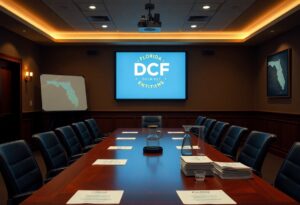Foster Children and the Challenges of Running Away

They are placed in Department of Children and Families (DCF) care often face difficult circumstances. While DCF’s goal is to provide a safe, nurturing, and supportive environment for foster children, this objective is not always achieved. Unfortunately, some run away from their foster homes due to various reasons, including emotional distress, feelings of instability, or conflicts within their placements.
When they go missing, the system’s response can be limited, and services to locate and support these children may fall short. Understanding the DCF investigation process is crucial for parents, guardians, and advocates to navigate these situations effectively. Moreover, knowing the rights of families involved with DCF empowers them to advocate for safety and well-being throughout the process.
Foster Children and the Nationwide Scrutiny of DCF’s Handling of Missing Youth
There welfare has come under national scrutiny, especially concerning how child welfare agencies handle cases of missing or absent foster youth. A nationwide investigation revealed alarming practices where thousands of missing foster children were effectively removed from the system without adequate follow-up.
Massachusetts DCF, like many other state agencies, faced criticism for its handling of these cases. This scrutiny sparked a call for reform and improvements in how they run away are tracked and supported. The investigation lasted about a year and brought important issues to light regarding accountability and care for vulnerable foster children.
Foster Children and the Massachusetts DCF Missing and Absent Pilot Program
In response to these concerns, Massachusetts DCF implemented the “Missing and Absent Pilot Program” aimed specifically at foster children who run away while in DCF custody. This program focuses on identifying high-risk youth and intervening early to prevent them from running away.
According to Boston 25 News, the pilot program has shown promising results. Since its launch in July 2018, the number of missing foster children has decreased by 38%. State data indicates that the number of missing or absent foster children dropped from 167 in July 2018 to 103 by April 2019.
Foster Children and the Need for Comprehensive Policies and Funding in DCF
Despite progress, there remains a significant gap in resources dedicated to finding and supporting missing children. The limited funds available within DCF for locating runaway foster youth underscore the urgent need for comprehensive policy and procedural reforms.
Such reforms should focus on improving oversight, increasing funding, and enhancing the DCF investigation process to ensure that foster children receive timely and effective support. The Governor’s budget recommendation to add $150,000, including $121,500 from the State’s General Fund, to hire a protective investigator for locating missing foster children is a step in the right direction.
Families and advocates play a vital role in supporting foster children, especially those at risk of running away. Understanding the DCF investigation process and the rights of foster children and their families can empower them to engage effectively with the system.
Parents and guardians should be proactive in communicating with DCF caseworkers and legal representatives to ensure that foster children’s needs are met and that appropriate safety measures are in place.
Foster Children and the Importance of Legal Support in DCF Cases

Navigating DCF cases can be complex and emotionally taxing. Legal support from experienced attorneys is crucial for families to protect their rights and advocate for the best interests of their children.
Kevin Seaver, a trusted Massachusetts DCF defense lawyer, has successfully represented clients facing DCF allegations and investigations since 1991. Families dealing with foster care challenges and DCF investigations can benefit from his expertise and guidance.
Foster Children and the Path Forward: Ensuring Safety and Stability
The challenges faced by foster children who run away from their placements require ongoing attention and action. While programs like the Missing and Absent Pilot Program show promise, sustained efforts are necessary to improve outcomes for these vulnerable youth.
By combining effective policies, adequate funding, community support, and legal advocacy, we can work toward a foster care system that truly protects and nurtures every child. Foster children deserve safe homes, loving support, and a system that responds swiftly and compassionately when they are at risk.
If you find yourself involved in a DCF case, it is advisable to seek legal representation from a qualified attorney, such as those at the Law Office of Kevin Seaver, who can advocate for your rights and guide you through the complex DCF investigation process.
Remember, the ultimate goal of DCF is to ensure the safety and well-being of children while supporting families in crisis.
Please note this article does not create an Attorney-Client relationship and is provided for informational purposes only. Readers should not rely on this information as legal advice and should seek specific counsel based on personal circumstances.
Kevin Patrick Seaver is a Massachusetts DCF Defense Lawyer who represents parents against false child abuse allegations.





